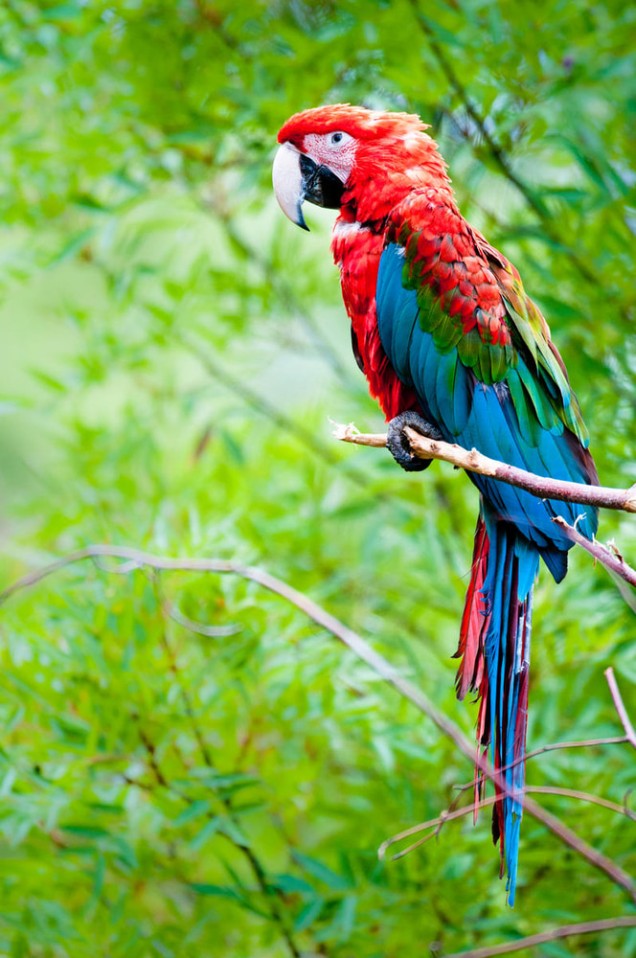The Amazon - A gift from nature to us all
The Amazon evokes a multitude of words and images: vast, spectacular, breath-taking, incredible, ancestral, and diverse. In truth, it’s all these things and more.
This is a region of contrasts and complexities, where Indigenous peoples cross the same forest paths as jaguars; where new and remarkable wildlife treasures are being discovered every day; and where the lush rainforest plays a vital role in helping to regulate our planet’s climate. Yet it’s also home to bustling cities, highways, and multiple industries, including those that have environmental, social, and economic impacts – some positive but many still harmful.
Although it occupies less than 1% of the Earth's land surface the Amazon contains almost 10% of the Earth's biodiversity, including:
-
18% of vascular plants
-
14% of birds
-
9% of mammals
-
8% amphibians
-
18% tropical fish

AMAZON ALERT
In the words of remarkable young Indigenous leader, Txai Suruí, "we are nature", and the Amazon is one of our most important gifts. But this unique and globally important biome is in danger.
Decades of deforestation and degradation caused by land-use change, agricultural production, infrastructure building, illegal gold mining and land grabbing are pushing it to an irreversible tipping point, exacerbated by the effects of climate change.
There’s a very real risk that if the Amazon loses 20% of its total tree cover, it will stop being able to sustain itself. Instead, it could become a heavily degraded ecosystem that will be unable to recover.
We’ve already lost around 17% of Amazon tree cover, and we’re seeing other damaging factors pushing the Amazon further towards the point of no return.

-
Since the early 2000’s, three-quarters of the rainforest has lost its ability to bounce back from disturbance, extreme fires and climate events
-
In the western part of the Amazon, rainfall has fallen by 20%, deforestation has reached 33% and the dry season is lasting longer.
-
The growth in mining, including illegal gold mining, is having a devastating impact on the Amazon river basin. Mercury and other pollutants are contaminating its waters and its fish, affecting other species such as river dolphins as well as the health and livelihoods of local communities.
We’re prioritising three ‘big wins’ that can help secure the Amazon’s future. The targets are ambitious, but they are crucial, and with your support we’re confident we can achieve them.
THREE BIG WINS
With our partners, including Indigenous peoples and local communities, we’re working to halt deforestation, end illegal gold mining, and conserve 80% of the Amazon’s forests, wetlands, and rivers by 2030.
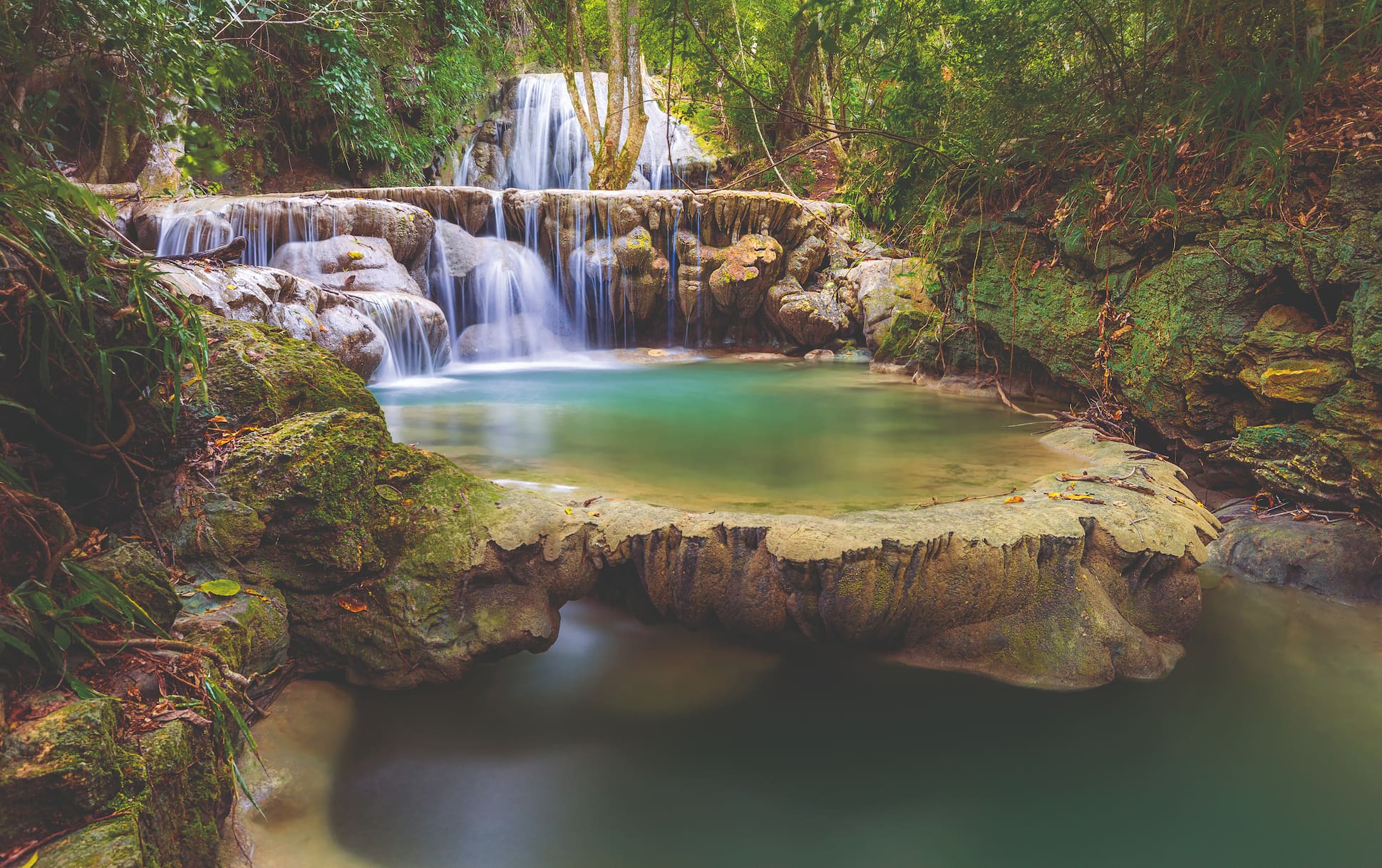
1. ZERO DEFORESTATION
The factors driving deforestation in the Amazon are complex, so we’re taking many different approaches, such as:
-
Helping businesses go greener: we're giving companies that have made commitments to remove deforestation from their supply chains the tools to turn commitment into action.
-
Raising consumer awareness: We're helping to raise public awareness of the links between the products they buy and deforestation. In doing this, we hope to strengthen demand for forest-friendly food.
-
Improving farming practices: with our support, ranchers are embracing regenerative farming techniques that reduce deforestation.
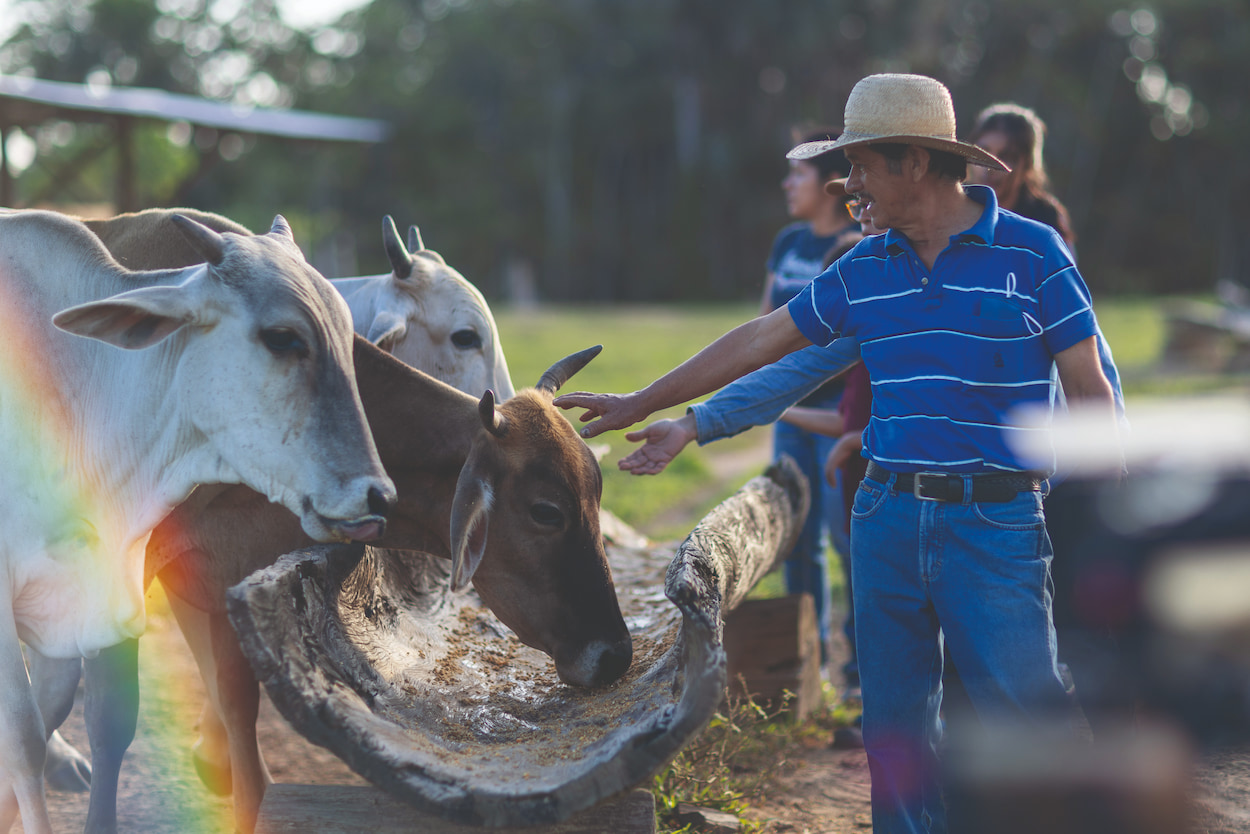
“Regenerative farming has really changed my life. The programme gave me lots of motivation to continue with conservation, because by restoring the environment I think we are going to save our world”
Mauro Hilares, cattle rancher
2. ENDING ILLEGAL GOLD MINING
The use of mercury in gold mining poses a significant threat to aquatic life and public health. We’re working to keep rivers healthy, protect local communities and key species such as river dolphins, and push for strong legislation to ensure gold is sustainably sourced. In Brazil’s Tapajós region, we’re working with our partners and local communities to address the impacts of illegal mining & support local communities
Leila Borari lives on the banks of the Tapajós river. She sadly suffered a miscarriage after eating fish contaminated with mercury, and her husband also has mercury poisoning. Determined to change things, Leila joined with other Indigenous women to form the Suraras of Tapajós group. As well as developing sustainable tourism, the group is mobilising against land grabbing, deforestation and illegal mining along the banks of the Tapajós.
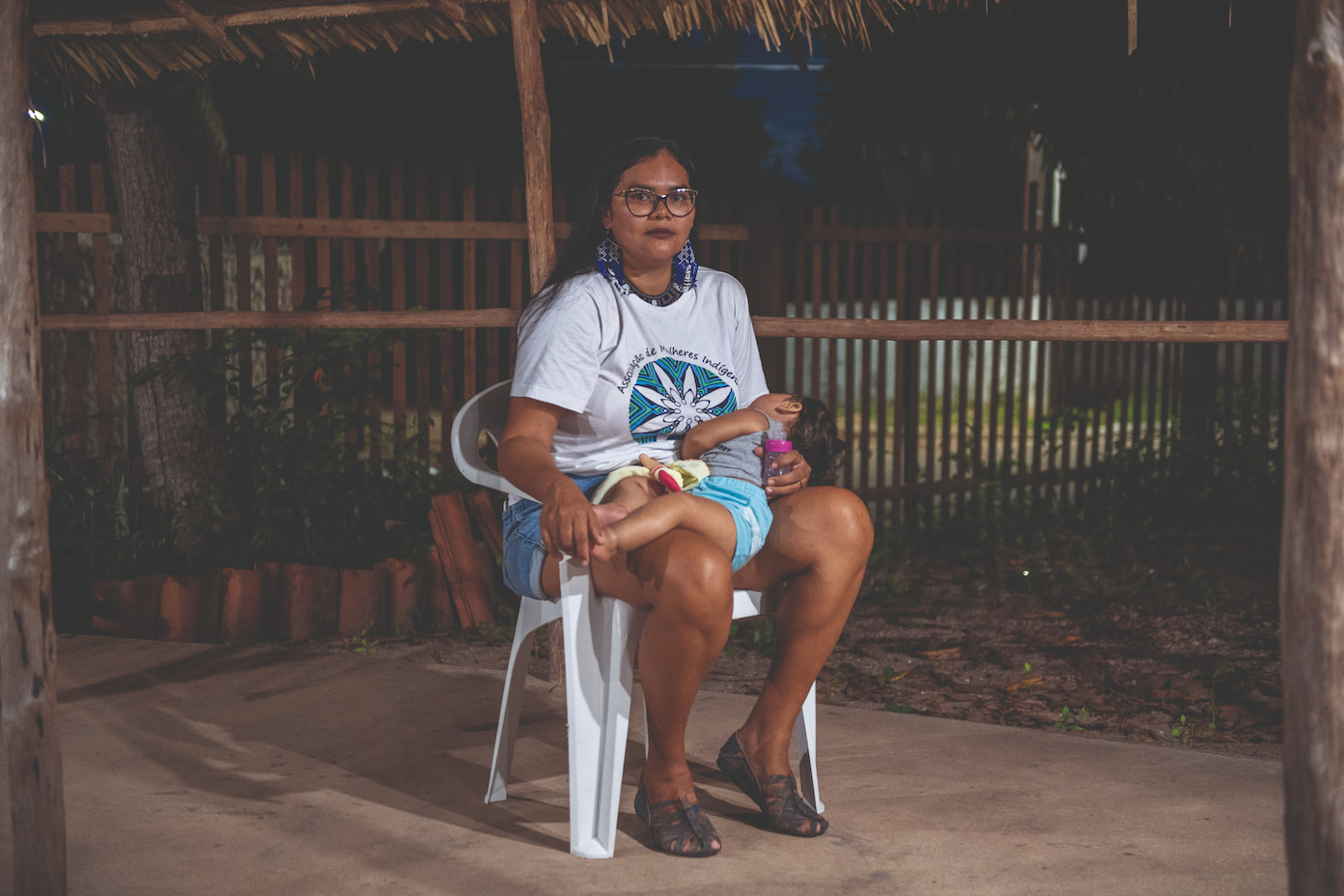
"My message is not for future generations, but for the current generation: the responsibility to stop the degradation of the Amazon is ours. We are the ones who must fight for the sustainability of the forest. We must commit ourselves and be kind to those who give us everything"
Leila Borari
3. CONSERVING 80% OF THE AMAZON
Manuel Salvatierra is one of many producers we’re working with who have a close relationship with the Amazon rainforest. He knows the trees are vital not only for the survival of jaguars and other wildlife, but also for local communities like his, who depend on the forest’s fruits, nuts and other natural resources for their livelihoods.
Açai berries have been consumed by Indigenous peoples for generations, and are now in global demand as a health food. The fact that açais have greater climate resistance is crucially important in our warming world. The berries need to be processed quickly or they will spoil. To speed things up, we’ve helped build an açai processing plant, which not only offers convenience but boosts the value of the berries.
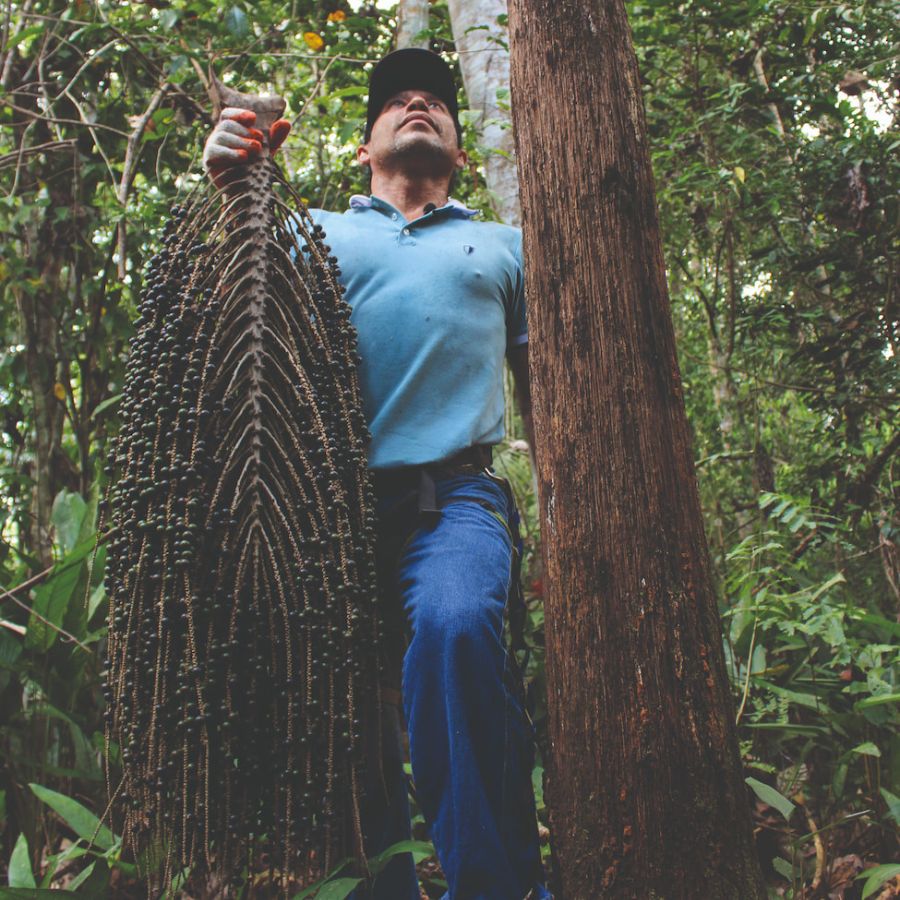
“The plant is the best thing about our community,” says Manuel. “It benefits us all.”
PLEASE HELP PROTECT THE AMAZON
A haven of incredible and still largely undiscovered biodiversity, a bastion of cultural diversity and ancestral knowledge, and a protector of global climate stability. The Amazon is one of the most remarkable and important places on Earth.
We can’t afford to lose it.
Together, we have the chance to help end deforestation, clean up rivers, protect wildlife and implement sustainable economies that favour nature and people. We hope you’ll stand with us as we strive to keep the Amazon alive.
"If we work together, we can still save the Amazon rainforest, we've got a chance of avoiding dangerous climate change. If we don't, it's game over. So, the choice is ours."
Mike Barrett, Executive Director of Science & Conservation, WWF-UK
